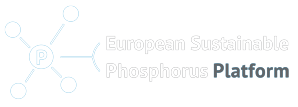The following article has been pubished by ENDS Europe, Europe's environmental news and information service.
A delayed EU green paper on the sustainable management of phosphorous should be published as soon as possible, says the Dutch representation in Brussels.
The following article has been pubished by ENDS Europe, Europe's environmental news and information service.
A delayed EU green paper on the sustainable management of phosphorous should be published as soon as possible, says the Dutch representation in Brussels. According to a source at the European Commission, the paper has been ready since the summer, but its publication has been blocked for political reasons by the secretariat-general. A consultation is also expected.
The Netherlands is pushing for the paper’s release at all levels, according to Dirk-Jan Vermeij of the Dutch representation in Brussels. “It is very important to get this green paper” ahead of a high-level conference it is part-sponsoring on the topic, he said.
The event, to be held on 6-7 March in Brussels, will cover economic opportunities for phosphorus recycling and how to create a market for the product obtained, alongside ways that Europe can cut its consumption. Sweden is also keen to see it. Belgium, Germany, Denmark, Sweden and the EU executive are helping to run the conference, where commissioner Janez Potočnik is due to speak on the paper.
The Netherlands has a particular interest in phosphorus due to the over-application of manure and fertiliser by intensive farms. This has left high concentrations in its soil. Runoff from this, combined with sewage effluent, contributes to eutrophication. To combat the problem, the Netherlands has asked industry to recycle phosphorus that would otherwise be lost in sewage, manure and other waste streams.
An EU source suggested that the commission’s secretariat-general is reluctant to release the paper as it supports introducing new environmental legislation at a time of economic difficulties. But the Dutch government views phosphorus recovery as an environmental and economic boon by creating value from polluting waste. An academic familiar with this issue noted that southern and eastern EU states tend to be less interested in developing new phosphorus policy than northern ones.
The EU imports about six kilograms of the mineral phosphate per person per year but produces very little. Rising demand and falling availability have caused prices to rise in recent years. This has prompted concerns over security of supply.
Follow Up: European Sustainable Phosphorus Conference 2013
